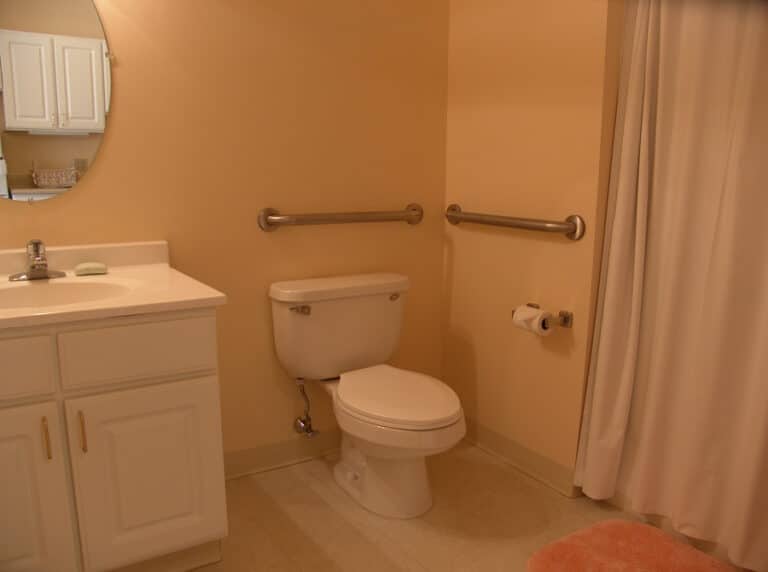Aging is the primary risk factor for bladder issues like incontinence and kidney stones. Many seniors have progressive incontinence as they get older. If your senior parent is living alone and is struggling with incontinence issues personal care at home providers can help them with things like getting to the bathroom, staying clean, and showering. With personal care at home, seniors who have incontinence can maintain their dignity as well as their health.
Even though there is no way to reverse incontinence seniors can do some things to improve their bladder health and lower their risk of developing incontinence like:
Drinking Water
Most seniors are mildly dehydrated at any given time, according to doctors. Drinking water or herbal tea can help seniors flush out toxins and bacteria and avoid kidney and urinary tract infections. The amount of water seniors should drink depends on factors like their weight and activity levels, but as a general rule of thumb, seniors should drink at least eight glasses of water daily.
Limit Caffeine and Alcohol
Caffeine and alcohol can irritate the bladder and contribute to increased urgency and frequency of urination. Seniors should moderate their intake of coffee, tea, cola, and alcoholic beverages to help maintain bladder health. Seniors should also avoid diet sodas that contain aspartame or other artificial sweeteners. It’s best to avoid soda altogether.
Eat More Fiber
A balanced diet rich in fiber is beneficial for bladder health. Fiber helps prevent constipation, which can contribute to bladder issues. Fruits, vegetables, whole grains, and beans are great sources of fiber. If your senior parent doesn’t get enough fiber in their diet their doctor may prescribe a fiber supplement, but your senior parent shouldn’t start taking any supplement without a doctor’s approval.
Avoid Bladder Irritants
There are some foods and beverages that irritate the bladder lining and cause inflammation, pain, and increased need to urinate. Seniors should limit or avoid spicy foods, citrus fruits, tomatoes, artificial sweeteners, and carbonated drinks.
Practice Pelvic Floor Exercise
Pelvic floor exercises, often called Kegel exercises, can help strengthen the muscles that support the bladder and improve bladder control. Seniors, especially women, can benefit from incorporating these exercises into their daily routine to prevent or manage incontinence. Kegel exercises are easy to do and can help prevent incontinence.
Lose Weight
Being overweight can put additional pressure on the bladder and pelvic floor muscles, increasing the risk of incontinence. Seniors that are overweight should talk to their doctor about starting a weight loss program or trying weight loss medication so that they can get to a healthy weight.
Empty the Bladder Regularly
Seniors should avoid holding in urine for extended periods. Holding in urine can contribute to bladder infections and weaken the bladder muscles over time. This can be a problem for seniors with Alzheimer’s or other dementia who can’t recognize when they need to urinate. Personal care at home aides can take your senior parent to the bathroom at set times and encouraging them to go can help.

Quit Smoking
Smoking can contribute to bladder problems, including an increased risk of bladder cancer. Quitting smoking not only benefits overall health but also supports bladder health.
Manage Chronic Conditions
Seniors with chronic health conditions such as diabetes or urinary tract issues should work closely with their healthcare providers to manage these conditions effectively. Proper management of underlying health issues can contribute to better bladder health.
If you or an aging loved one are considering Personal Care at Home Services in Framingham MA, please contact the caring staff at Care Resolutions, Inc. today. (508) 906-5572
CARE Resolutions, Inc. provides quality 24-Hour Home Care for seniors and families in Walpole, Dover, Wellesley, Framingham, Norfolk, Quincy, Weston, Medfield, Boston, Sherborn MA, and surrounding areas.
- Tips for Seniors Who Want to Try Social Media - April 7, 2025
- How Can Seniors Transition Home from the Hospital Smoothly? - March 19, 2025
- Can Seniors Get Fit and Stay Active with Chronic Health Issues? - March 6, 2025



